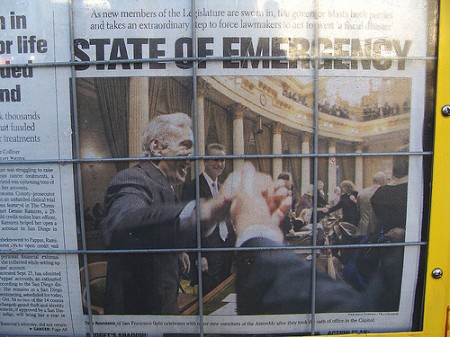
Declaring a state of emergency opens the door to an exceptional world, one in which government power is temporarily prioritized over individual rights. Unfortunately, many countries (see examples below) have made the exception a permanent rule.
The International Covenant on Civil and Political Rights (ICCPR) recognizes each state’s right to declare a state of emergency in times of public crisis that pose a direct threat to the nation. This allows the state to derogate from certain human rights obligations under the Covenant. Declaring a state of emergency grants governments exceptional powers, thus allowing them to curtail certain individual rights.
Although certain rights are non-derogable even at a time of national emergency – among others, the right to life, prohibition of torture, freedom from slavery, the right to recognition before the law – governments can limit the freedom of the press, deploy armed forces domestically, search homes without a warrant, confiscate private property, and arrest without charges.
In order to avoid governmental abuse, the ICCPR makes clear a state of emergency must be guided by certain principles. First, the crisis at hand must be of present and real danger to the state’s political or territorial existence. Second, it must be temporary, meaning that states can only declare a state of emergency for as long as the crisis is still present. And third, the state of emergency must be clearly declared and communicated both to the domestic population and to the international community.
Unfortunately, these principles are often violated by governments seeking to continue enjoying, on a permanent basis, what were meant to be temporarily exceptional powers. Following are a few examples of countries that are in violation of the temporal and exceptional principles by maintaining a state of emergency for a protracted period of time and beyond the cessation of the exceptional circumstances under which the emergency was originally declared:
Egypt
In May 2010, the Egyptian Parliament voted to extend its state of emergency for another two years. Egypt has been living under a state of emergency since the Arab-Israeli War of 1967. For 29 years, Egypt’s Emergency Law has significantly stifled the people’s constitutional rights, such as the right to organized political opposition, while giving the state extensive policing powers.
Israel
An official state of emergency has been in effect in Israel since 1948, allowing the unicameral Knesset to dissolve the government and mandate elections whenever it deems the security of the country to be threatened.
Sri Lanka
Sri Lanka has enjoyed emergency laws since 1983 when they were passed to help the government fight the Tamil Tigers’ rebellion. The conflict ended over a year ago, but emergency regulations remain in place, allowing security forces to continue engaging in abusive practices.
Syria
Syria has been in a state of emergency since 1962 with the implementation of an automatically renewable martial law. It allows the state to use exceptional measures, such as torture, to combat internal and external threats.
United States of America
In the immediate aftermath of 9/11, then-US president George W. Bush instituted a state of emergency, ostensibly to assist the US’ ‘global war on terrorism’. Recently renewed and extended by President Barack Obama, the state of emergency allows the US to arrest and indefinitely hold anyone suspected of directly or indirectly engaging in any acts deemed a threat to the US.
For more examples and information on the topic, see our publications, news articles and primary resources.

